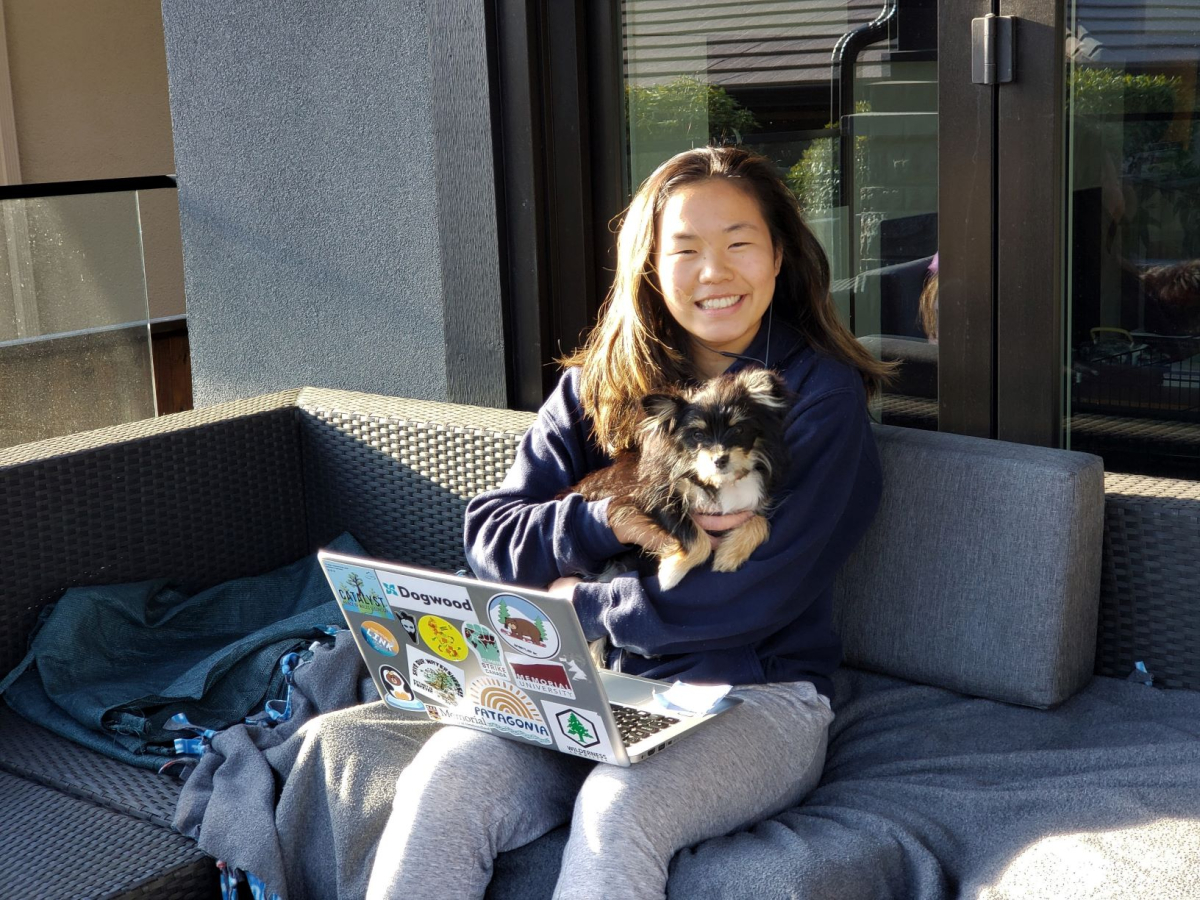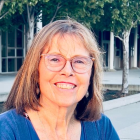Support strong Canadian climate journalism for 2025
As part of a series highlighting the work of young people in addressing the climate crisis, writer Patricia Lane interviews 19-year-old Samantha Lin who, with organizations like Vancouver’s Sustainabiliteens, has a track record of success in pressing local governments to reduce emissions.
Author’s statement
With the realities of climate change, inequality and the pandemic, one could be forgiven for choosing despair. But the world is no better off for that, so I choose to study hope, a discipline that requires practice. Here, treat yourself to a few minutes of joy in the next instalment of my series profiling amazing — and yes, hopeful — young people contending successfully with the climate justice crisis in Canada.

Samantha Lin
Not sure how to get more climate justice action from your local government? Nineteen-year-old Samantha Lin has you covered.
Tell us about your project.
Local government decisions could eliminate half Canada’s greenhouse gas emissions. I work with the David Suzuki Foundation supporting young climate activists to help local decision-makers to fulfil that potential.
How does your program work?
Young climate activists from across Canada attend workshops on the role municipal governments can play in the climate justice crisis. They learn science, the political structures of government, and how to gather support and approach decision-makers. We help them tailor an approach and provide coaching to help them carry it out. Along the way, they become part of a fabulous network of other young changemakers and organizers.
Can you give us an example?
We have teams from the Maritimes to B.C., and each community is very different. In Vancouver, I was part of the Sustainabiliteens, who, in 2019, succeeded in pressuring council to declare a climate emergency, and we have since been consulted on the development of the city’s bold, comprehensive plan. In Mississauga and Vaughan in Ontario, youth have persuaded councils to oppose a new superhighway and embrace transit and active transportation, like cycling and walking. In some small cities in Alberta, it is personally dangerous to have a profile as a climate activist. Their work has to be done very differently. In that case, the focus might be on talking in schools and among friends to change the way the community talks about the crises.

What drew you to this work?
My family created a strong future for me by taking matters into their own hands, valuing hard work and caring for family. That legacy gave me the privilege of time and resources to reflect and realize that if I and my children are going to have the strong future my grandparents and parents wanted for me, it is not enough to just work hard for our own families. Climate change, income inequality, racism and the way we treat Indigenous people affect us all. If I am to shape the future, I must take matters into my own hands and work hard for the common good.
What do you worry about?
I have trouble accepting that the executives of fossil fuel companies and other large corporations like banks have known about the dangers of climate change for so long and (have) chosen to make it worse. They have deliberately sacrificed so much of our biodiversity, degraded our environment, created unconscionable economic inequity and divided us along racial and other lines — and made immense wealth doing so. These people are still alive, and they have so much influence. Their selfishness and greed continue to shape decisions, and they will never prioritize the common good. That scares me.
What gives you hope?
I watch with awe as Indigenous land defenders continue to stand up, despite the horrific way they have been, and are, treated. But they are still here and are leading us in the right direction if we just listen.
The Black Lives Matter protests had a significant and very rapid impact. My conversations in every facet of my life are so much more concerned with racism and inequality than they were before just last summer. That makes me hopeful we can change other things rapidly, too.
Do you have any advice for young people?
When I started to learn about climate change, I was very scared and felt very alone. I doubted anyone I knew cared about it as much as I did. But I got involved organizing a Vancouver School Board Sustainability Conference and saw many other students and teachers who do care just as much. That was life-changing for me. Believe in a brighter future. Find communities that value you, where you feel good about yourself and which support your mental and physical health. Don’t walk alone. Join a group that is doing something concrete, no matter how small. You will make new friends who will see you through. It is in groups where we have the power to make our voices heard.
What would you like to say to older people?
Open your hearts and ears to the reality of what is going on in the world. Acknowledge the wisdom of the Indigenous land defenders who have been here for centuries before us. Be aware of how interconnected the climate crisis is to all other issues. Make a decision to do something about it. Support youth who are taking a stand. It is not about you as an individual, it’s about what we do as a collective. Bring your skills. We need everyone.






Comments